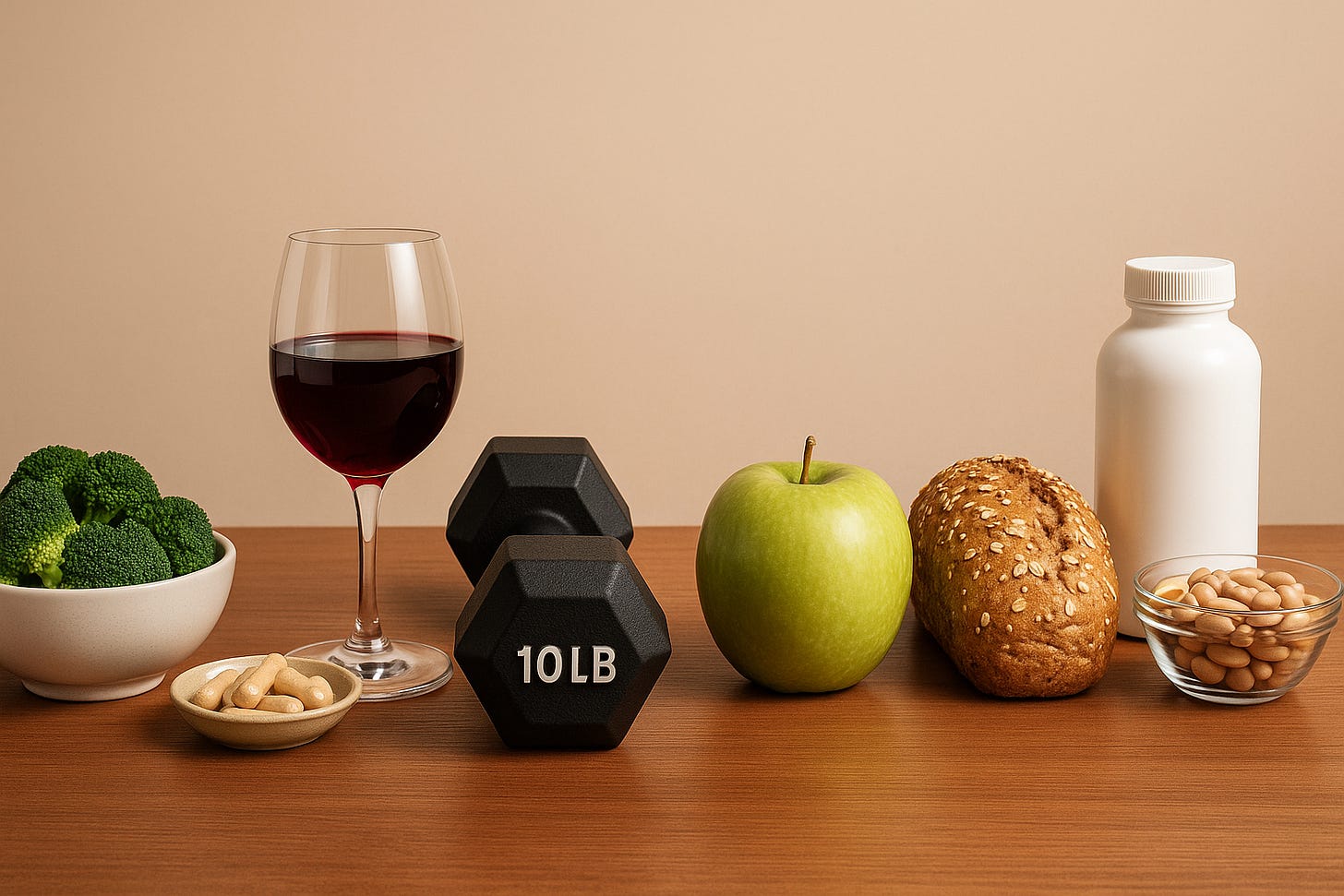Longevity Myths Busted: 7 Things You Think Help (But Might Actually Hurt)
Why Your “Healthy” Habits Might Be Aging You Faster Than You Think
We all want to live longer—and better. So we chase the latest health trends, guzzle kale smoothies, and maybe even flirt with intermittent fasting. But what if some of the things we believe are helping us live longer are actually doing the opposite? 🧓💥
Welcome to the world of longevity myths: well-meaning habits that might be quietly sabotaging your healthspan. Let’s bust seven of the most persistent ones—and replace them with smarter, science-backed strategies.
1. More Protein = More Life? Not So Fast
Protein is essential, but too much—especially from animal sources—can backfire. Overconsumption elevates IGF-1 (Insulin-like Growth Factor 1), a hormone linked to accelerated aging and increased risk of chronic diseases. Dr. Joseph Antoun refers to this as the "Diabetes of Protein".
Instead, consider a plant-forward diet rich in complex carbs and healthy fats. Mediterranean, pescatarian, or flexitarian diets have been associated with lower IGF-1 levels and improved metabolic health.
2. Cutting Carbs? You Might Be Cutting Years Off Your Life
Low-carb diets are trendy, but not all carbs are villains. A Tufts University study found that women who consumed high-quality carbs—like beans, berries, and whole grains—in midlife had a better chance of reaching their 70s without chronic diseases or cognitive decline.
The key is choosing the right carbs: opt for fiber-rich, minimally processed options over refined sugars and white flour.
3. More Exercise Equals More Years? Not Necessarily
Exercise is vital, but more isn't always better. A Finnish twin study revealed that moderate physical activity yields the greatest longevity benefits, with no extra reduction in mortality risk from excessive exercise.
Aim for 150 minutes of moderate-intensity exercise per week. Balance is crucial—overtraining can lead to injuries and chronic fatigue.
4. Red Wine: A Daily Dose of Longevity? Think Again
The idea that a daily glass of red wine extends life is popular, thanks to resveratrol's supposed heart benefits. However, the amount of resveratrol in wine is too small to have significant effects. Excessive alcohol consumption increases risks of liver disease, addiction, and certain cancers.
Moderation is key. For heart health, focus on physical activity and a balanced diet rich in fruits, vegetables, and whole grains.
5. Supplements: The Silver Bullet for Longevity?
Supplements can fill nutritional gaps but aren't magic pills. Overreliance can be harmful. A study in the Annals of Internal Medicine found no evidence that multivitamin supplements increased longevity in women.
Prioritize obtaining nutrients from whole foods. Supplements should complement, not replace, a balanced diet.
6. Caloric Restriction: The Fountain of Youth?
While caloric restriction has shown benefits in animal studies, the evidence in humans is less clear. Severe calorie reduction can lead to malnutrition, muscle loss, and weakened immunity.
Focus on a nutrient-dense diet that includes a variety of whole foods. Maintaining a healthy weight through balanced nutrition and regular physical activity is more sustainable.
7. Longevity Is All in Your Genes? Not Quite
Genetics play a role, but lifestyle factors have a significant impact on lifespan. Studies suggest that only about 20-30% of an individual's lifespan is attributed to genetics, with the remaining 70-80% influenced by lifestyle and environment.
Adopt healthy habits: balanced diet, regular exercise, stress management, and social engagement. These choices can add years to your life.
Related: 7 Longevity Myths That Are Holding You Back (Debunked by Experts)
Final Thoughts: Rethinking Longevity
Living longer isn't just about adding years to your life—it's about adding life to your years. By debunking these myths and embracing evidence-based practices, you can pave the way for a healthier, more vibrant future.
So, which of these myths surprised you the most? Share your thoughts and let's continue the conversation on living better, not just longer. 💬


